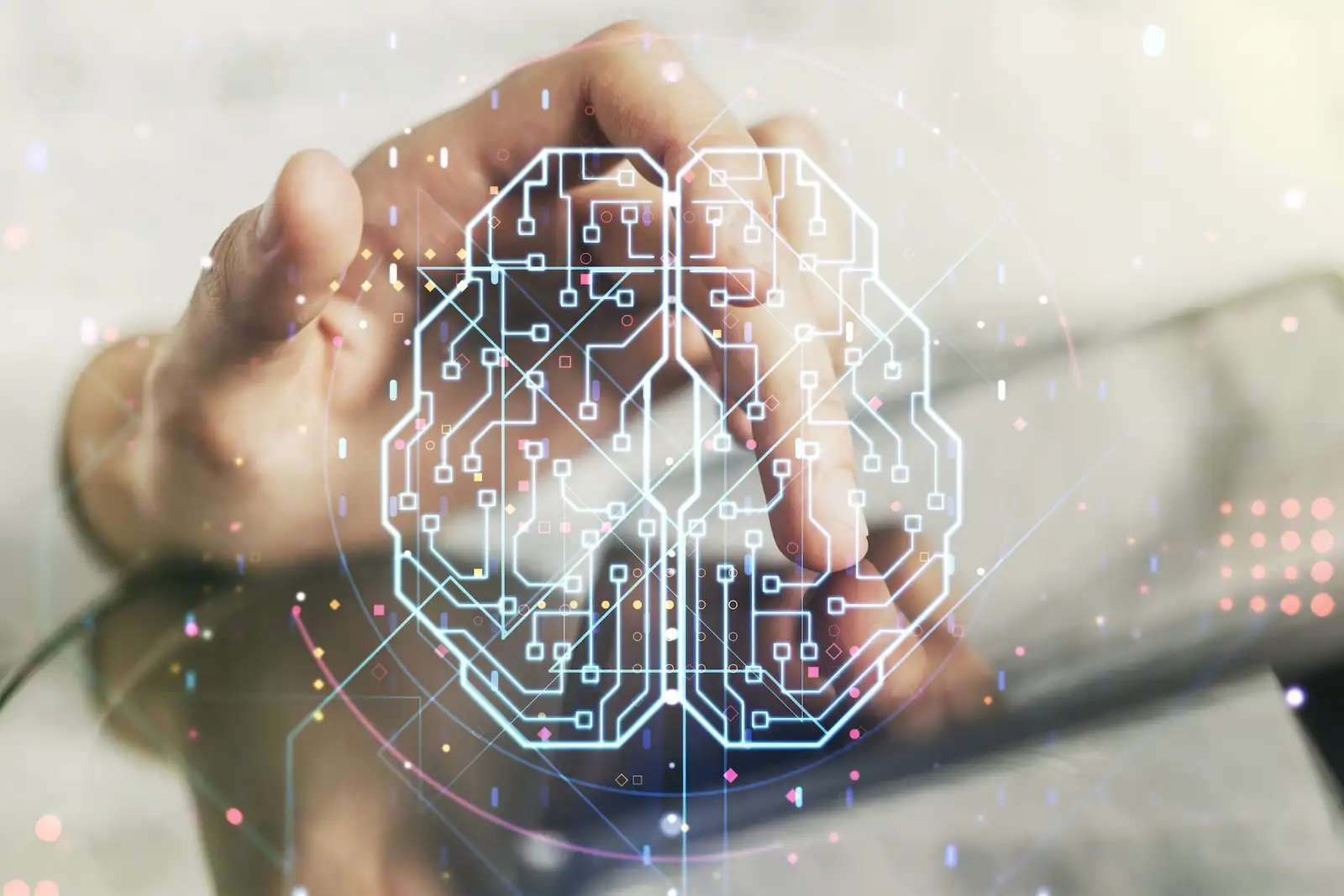Imagine a world where your every command is instantly obeyed, your every question immediately answered, and your every whim anticipated. No, this isn’t a futuristic utopia or a scene from a sci-fi novel. It’s the reality of living with AI assistants like Siri, Alexa, or Google Assistant.
- The AI Assistant Revolution: Convenience at a Cost
- Privacy in the Age of Always-Listening Devices
- The Bias in the Machine: When AI Perpetuates Prejudice
- Consent and Autonomy: Who’s Really in Control?
- The Data Dilemma: Security in a Connected World
- The Future of AI Assistants: Ethical Innovation or Digital Dystopia?
These digital genies have seamlessly woven themselves into the fabric of our daily lives, promising convenience, efficiency, and even companionship. But as we invite these artificial intelligences into our homes and hearts, we’re also opening the door to a host of ethical quandaries that challenge our notions of privacy, autonomy, and what it means to be human. It’s time to pull back the curtain on our silicon sidekicks and confront the moral minefield we’re navigating with every “Hey Siri” or “Okay Google.”
Overview:
- AI assistants offer unprecedented convenience but raise significant privacy and ethical concerns.
- Algorithmic bias in AI systems can perpetuate and amplify social inequalities.
- Issues of consent and autonomy become complex in always-on, AI-integrated environments.
- Data security risks pose unique challenges when AI assistants handle sensitive personal information.
- The future of AI assistants requires balancing innovation with robust ethical frameworks.
The AI Assistant Revolution: Convenience at a Cost
Remember when getting directions meant unfolding a map the size of a parachute? Or when settling a trivia debate required a trip to the library? Those days are as extinct as the dodo, thanks to our AI assistants. With a simple voice command, we can control our homes, schedule our lives, and access the sum of human knowledge. It’s like having a personal secretary, DJ, and encyclopedia all rolled into one pocket-sized package.

But here’s the rub: this convenience comes at a cost, and the currency is our data. Every interaction with an AI assistant is a data point, painting an ever more detailed picture of our lives, habits, and preferences. It’s a digital dossier that would make even the most zealous secret service agent blush.
The numbers tell a sobering story. According to a Pew Research Center survey, 72% of Americans are concerned about how companies use their personal data, including data collected by AI assistants. Yet, many of us continue to use these devices, caught in the crossfire between convenience and privacy.
The surveillance capitalism model underlying AI assistants poses significant ethical challenges
warns Shoshana Zuboff, a leading voice in digital ethics.
But let’s not throw the baby out with the bathwater. AI assistants have the potential to revolutionize accessibility for people with disabilities, streamline mundane tasks, and even provide companionship to the lonely. The question is: can we harness these benefits without selling our digital souls?
As we dance with our digital assistants, we’re faced with a fundamental question: Are we enhancing our lives or outsourcing our autonomy? Is the convenience worth the potential cost to our privacy and independence?
Privacy in the Age of Always-Listening Devices
Now, let’s address the elephant in the room – or should I say, the microphone in the living room. AI assistants are always listening, waiting for that magic wake word. But what happens to all those other conversations they overhear? It’s like having a houseguest with supersonic hearing and a perfect memory.
The privacy implications are staggering. These devices aren’t just passively listening; they’re recording, analyzing, and sometimes even sharing our most intimate moments. Remember that private conversation about your embarrassing medical condition? Well, Alexa remembers, and she might have told Amazon about it.
Transparency and user consent are critical for ethical data practices in AI assistants
argues Helen Nissenbaum, a renowned expert in privacy and technology
But here’s where it gets really murky: the concept of consent in the age of AI assistants is about as clear as mud. Sure, we agree to terms of service, but let’s be honest – who actually reads those digital tomes? And even if we did, do we truly understand the implications of what we’re agreeing to?
The challenge isn’t just technical; it’s psychological and societal. We’re creating a world where constant surveillance is normalized, where our homes are no longer our castles but data mines for tech giants. It’s a privacy paradox – we value our privacy, yet we willingly invite these digital eavesdroppers into our lives.
So, here’s a thought experiment for you: If you knew that every word you spoke in your home was being recorded and analyzed, how would it change your behavior? Would you still invite that AI assistant to your next family dinner?
The Bias in the Machine: When AI Perpetuates Prejudice
Let’s tackle another uncomfortable truth: our AI assistants might be smart, but they’re not necessarily fair. These silicon sidekicks can come with some very human flaws – namely, bias. And we’re not talking about a preference for one brand of cereal over another. We’re talking about systemic biases that can perpetuate and amplify social inequalities.
The numbers are sobering. Research by MIT Media Lab revealed that AI systems, including voice recognition used in AI assistants, had higher error rates for non-native speakers and certain accents. It’s not just an inconvenience; it’s a form of digital discrimination.
Algorithmic bias in AI systems can perpetuate social inequalities and must be addressed
asserts Joy Buolamwini, a researcher in algorithmic bias.
But here’s where it gets really concerning: as AI assistants become more integrated into our daily lives, these biases could have real-world, far-reaching consequences. Imagine an AI assistant that consistently misunderstands or ignores commands from certain ethnic groups, or provides inferior information based on perceived gender or age.
The root of the problem often lies in the data used to train these AI systems. If the training data isn’t diverse and representative, the resulting AI will reflect and amplify existing societal biases. It’s like teaching a child using only books from the 1950s and expecting them to understand modern society.
Addressing this issue isn’t just about tweaking algorithms; it requires a fundamental rethinking of how we develop and deploy AI systems. It’s about creating diverse development teams, using representative training data, and implementing rigorous testing for bias.
Here’s a provocative question to ponder: If your AI assistant could perfectly mimic human interactions, including human biases, would it be more “realistic”? Or should we strive for AI that’s better than human, free from our prejudices and limitations?
Consent and Autonomy: Who’s Really in Control?
Let’s dive into a philosophical quandary that would make Descartes scratch his head: in a world increasingly managed by AI assistants, who’s really calling the shots? Are we enhancing our autonomy or slowly ceding control to our silicon servants?
On the surface, AI assistants seem to empower us. They help us manage our time, make informed decisions, and even take care of mundane tasks. But there’s a fine line between assistance and influence. When your AI suggests a restaurant, a product, or even a political view, how do you know if it’s an unbiased recommendation or a subtle nudge driven by hidden agendas?
The concept of informed consent becomes murky in this AI-integrated world. IBM’s survey showed that 81% of consumers are concerned about how companies use their personal data, including data collected by AI assistants. Yet, many of us continue to use these devices, often without fully understanding what we’re agreeing to.
We need to rethink the ethical frameworks governing data collection and AI technology
urges Tim Berners-Lee, the inventor of the World Wide Web
Here’s the mind-bending twist: as AI assistants become more sophisticated, they’re not just following our commands – they’re anticipating our needs, shaping our choices, and potentially influencing our behavior. It’s a subtle form of digital paternalism that raises profound questions about human agency and free will.
The challenge is creating AI assistants that truly empower users rather than subtly controlling them. This means developing systems that are transparent about their decision-making processes, respect user preferences, and always prioritize human autonomy.
So, here’s a thought experiment to keep you up at night: If an AI assistant could make better decisions for you than you could for yourself, would you let it? At what point does assistance become control?
The Data Dilemma: Security in a Connected World
Now, let’s talk about the elephant in the room – or should I say, the treasure trove of personal data in the cloud. Every command, every question, every interaction with your AI assistant is stored, analyzed, and potentially vulnerable. It’s like keeping a detailed diary of your life and leaving it on a park bench.
The threat is real and growing. The Identity Theft Resource Center reported a 17% increase in data breaches involving voice data in 2023. That’s not just a statistic; it’s a looming privacy apocalypse. Once your voice data is out there, you can’t change it like a password.
The social implications of AI assistants require careful consideration and regulation
emphasizes Kate Crawford, a leading researcher in AI ethics
But it’s not just about identity theft or embarrassing voice recordings leaking online. The data collected by AI assistants can be used to build detailed profiles of users, potentially influencing everything from insurance rates to job opportunities. It’s like having a digital doppelganger that knows you better than you know yourself.
The irony is palpable: the very features that make AI assistants so useful – their ability to learn and adapt to our needs – also make them potential security nightmares. The more they know about us, the more valuable (and vulnerable) that information becomes.
So, here’s the million-dollar question: In a world where data breaches are becoming as common as bad weather, is it responsible to continue collecting and storing such sensitive personal data? Or are we creating a ticking time bomb of privacy invasion?
The Future of AI Assistants: Ethical Innovation or Digital Dystopia?
As we peer into the crystal ball of AI assistant technology, the future looks both exhilarating and terrifying. We’re standing at a crossroads where our choices today will shape the relationship between humans and AI for generations to come.

Imagine a world where AI assistants are so advanced they can read your emotions, predict your needs, and even make decisions on your behalf. Your digital assistant could be your therapist, your financial advisor, and your life coach all rolled into one. Convenient? Absolutely. But it’s also a world where the line between human and machine becomes increasingly blurred.
But it doesn’t have to be a dystopian future. Ethical innovation in AI assistants could lead to technologies that enhance our lives while respecting our privacy and autonomy. Picture AI systems that are transparent about their decision-making processes, that prioritize user privacy by design, and that are programmed with strong ethical principles.
The future of AI assistants lies not just in technological advances, but in a fundamental shift in how we value and respect individual privacy and autonomy
predicts a leading ethicist in AI technology
We’re seeing the emergence of “privacy-preserving AI” – systems that can perform their functions without storing or sharing personal data. It’s a tall order, but it’s not impossible. Techniques like federated learning and differential privacy are paving the way for AI that’s both powerful and respectful of user privacy.
The key lies in developing what some call “ethical AI by design” – baking ethical considerations into the very fabric of AI systems from the ground up. This means creating AI assistants that are not just tools, but partners in maintaining our digital rights and freedoms.
Here’s the crucial insight: creating an ethical future for AI assistants isn’t just about technology. It’s about fostering a society that values privacy, understands the implications of AI, and demands ethical standards from tech companies. It’s about creating a culture where privacy features are as important as convenience when choosing AI products.
Your Move
The future of AI assistants is being written right now, and you have a say in it. This isn’t just about technology – it’s about the kind of relationship we want to have with AI in our daily lives.
Start by educating yourself. Understand the AI features in your devices and apps. Read those privacy policies (yes, all of them). Knowledge is power, especially in the AI age.
Be proactive about your privacy. Use privacy-enhancing settings when available. Consider supporting companies that prioritize ethical AI practices. Your choices as a consumer send a powerful message.
Engage in the public discourse. Contact your representatives about AI regulation. Participate in public consultations. Your voice matters in shaping policy.
For the tech enthusiasts and developers out there, consider how you can innovate responsibly. Can you create AI systems that are both powerful and privacy-preserving? The next big breakthrough in ethical AI could be yours.
And for everyone: start conversations. Talk to your friends, family, and colleagues about AI ethics. Raise awareness about both the potential and the pitfalls of AI assistants.
Remember, the goal isn’t to halt progress. It’s to ensure that as we advance, we don’t leave our ethical standards and human values behind. The future of AI assistants is in our hands – or should I say, in our voice commands.
So, what’s your next move in this high-stakes game of digital chess? Will you be a pawn in the AI game, or will you take control and help shape an ethical AI future? The choice, like your relationship with AI, is personal and profound.
















